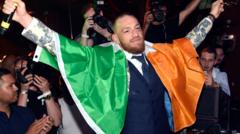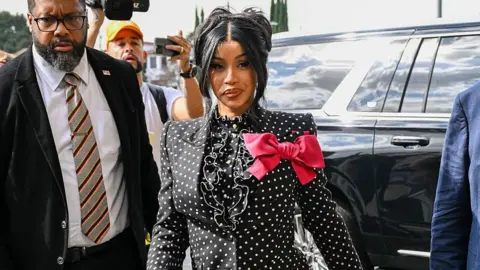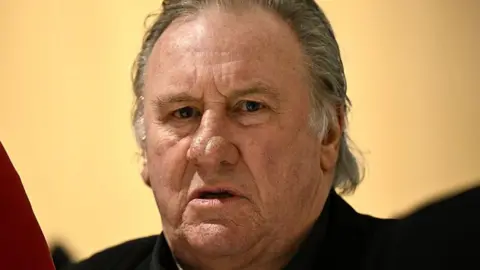Conor McGregor, the former UFC champion and Ireland's once celebrated sporting icon, finds himself at the center of a growing storm following a Dublin civil jury’s decision that deemed him guilty of sexual assault. This ruling, stemming from a case brought by Nikita Hand, who accused McGregor of raping her at a hotel in December 2018, has triggered widespread backlash and a mass distancing by previous supporters.
In a statement to his millions of followers, McGregor declared, “The fight game awaits!” shortly after the ruling was announced. Nevertheless, major retailers across both the UK and Ireland swiftly removed products associated with him from their shelves, and brands quickly cut ties. McGregor's Proper No Twelve whiskey, which was acquired by Proximo Spirits in 2021, will no longer feature his name in advertisements, signaling a stark departure from his previously lauded image. Even the National Wax Museum in Dublin has opted to remove his figure from its displays.
McGregor, known for his brash persona and once seen as a trailblazer for mixed martial arts in Ireland, faces mounting discontent as his legal troubles continue to pile up. The 12-person jury awarded nearly €250,000 (£208,000) in damages to Ms. Hand and the athlete has signaled intentions to appeal the verdict.
From humble beginnings in Lucan, Dublin, where he left a plumbing apprenticeship to pursue his passion for MMA, McGregor's ascent was meteoric. He captured the hearts of many during Ireland's struggle with recession, embodying a rise-from-the-ashes narrative that resonated deeply with the public. Petesy Carroll, an MMA journalist, recalled how McGregor's success first inspired pride in Irish identity during difficult economic times.
However, the UFC fighter’s rise to fame has been marred by numerous controversies. Since 2018, incidents such as an arrest stemming from a bus attack, a public altercation in a Dublin pub, and more recently, the civil case brought against him have led to public erosion of his previously staunch support. Critics contend that the legal verdict has shifted the Irish public’s perception significantly, with many now hesitant to view him as a role model.
As the repercussions of the verdict unfold, there are signs that an era of McGregor’s influence may be ending. Gym owner Gary Scully, who recently painted over a mural of McGregor, remarked on the community sentiment: “People want nothing to do with him.” This sentiment, echoed by many former supporters, reflects a broader sense of national disillusionment as the country witnesses a fundamental change in how it perceives its former hero.
In the aftermath of the verdict, a marked surge in calls to rape crisis helplines highlights the case's impact on societal conversations surrounding sexual assault. Nikita Hand has become a focal point for advocating justice, urging other victims to speak out.
Reflecting on what comes next for McGregor, critics and fans alike await to see if the fighter can reclaim not only his career but also any semblance of a positive public image in the wake of such a tumultuous period. McGregor's past as a symbol of pride for the Irish people's resilience feels increasingly distant as the ramifications of the jury's decision echo throughout the nation.



















